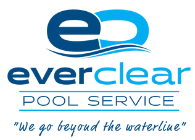If you own a pool in Lake Havasu City, you know the challenges that come with maintaining it in Arizona’s hot and dry climate. Between the triple-digit summer temperatures and relentless sun exposure, keeping your water crystal clear is already a task. Add Arizona’s notoriously hard water to the equation, and it becomes even more complicated.
For many pool owners, the buildup of calcium and other minerals can make pool surfaces look dull, cloud the water, and damage equipment. The typical solution? Drain and refill the pool. But with water conservation concerns, rising utility costs, and environmental awareness, more homeowners are asking: Can you beat hard water without draining your pool?
The answer is yes—and it starts with understanding what you’re dealing with and what alternatives you have.
The Problem: Arizona Hard Water and Your Pool
 Lake Havasu City, like much of Arizona, is supplied with extremely hard water, rich in calcium and magnesium. When this mineral-heavy water evaporates—something it does rapidly in the desert heat—it leaves calcium deposits behind. These show up as white scale on tile, pool walls, plumbing, and filtration equipment.
Lake Havasu City, like much of Arizona, is supplied with extremely hard water, rich in calcium and magnesium. When this mineral-heavy water evaporates—something it does rapidly in the desert heat—it leaves calcium deposits behind. These show up as white scale on tile, pool walls, plumbing, and filtration equipment.
Over time, if untreated, hard water causes:
- Calcium scale buildup on tile and grout
- Cloudy water due to excess calcium saturation
- Clogged filters and pipes
- Reduced heater efficiency
- Damage to pool surfaces and equipment
In extreme cases, pools become difficult (and expensive) to maintain, prompting the need for partial or full drainage to reset water chemistry. But draining brings its own problems: structural risks, high water bills, and environmental concerns.
Fortunately, there are now effective, non-draining solutions to managing hard water in Lake Havasu pools.
Alternative Solutions to Draining
Here are several proven methods that local pool care professionals recommend for managing Arizona’s hard water—without the hassle of draining.
1. Reverse Osmosis (RO) Pool Filtration
One of the most advanced ways to treat hard water in a pool is through reverse osmosis filtration. This process involves cycling your pool water through a mobile RO system that removes dissolved minerals, contaminants, and impurities.
Unlike traditional draining, RO cleans the water while keeping it in the pool, leaving you with soft, balanced water that’s safer for swimmers and equipment.
Benefits of RO Pool Filtration:
- Removes calcium, magnesium, and other minerals
- Balances pH and total dissolved solids (TDS)
- No water waste or environmental hazard
- Keeps water in the pool—no downtime
While reverse osmosis pool cleaning may cost more upfront than a drain-and-fill, the long-term benefits often outweigh the expense.
2. Use of Scale Inhibitors and Chelating Agents
Certain pool chemicals are designed to bind with calcium and other minerals, preventing them from forming scale or clouding your water. These include scale inhibitors, sequestering agents, and chelating agents.
While they don’t remove minerals from the water, they help keep them dissolved and less reactive. Regular use of these additives—especially during the hot summer months—can dramatically reduce scale buildup and maintain clear water.
Look for products that are compatible with your pool’s surface and finish, and always follow dosage instructions carefully.
3. Regular Tile and Surface Cleaning
If you already have visible calcium buildup on your tile line or water features, there are non-invasive cleaning methods available. Pool professionals in Lake Havasu City often use bead blasting (sometimes called glass bead or salt blasting), a technique that safely removes calcium without damaging tile or grout.
This maintenance service can be done annually or biannually, depending on how hard your water is and how well you maintain your pool chemistry. It’s far less disruptive—and less expensive—than resurfacing your pool.
4. Proactive Water Chemistry Management
Consistent and accurate testing is your best friend when it comes to preventing hard water damage. Pool owners in Lake Havasu should:
- Test calcium hardness levels regularly (ideal range: 200–400 ppm)
- Monitor pH and alkalinity (keep pH between 4–7.6)
- Use phosphate removers to prevent algae, which thrives in imbalanced water
- Clean filters and skimmers regularly to improve circulation
Working with a local pool care professional can help you fine-tune your maintenance plan and catch hard water problems early—before they require drastic action.
In Lake Havasu City, hard water is a fact of life. But draining your pool every time calcium levels spike doesn’t have to be. Thanks to advances in pool care technology—like reverse osmosis filtration, mineral inhibitors, and targeted tile cleaning—you can enjoy soft, sparkling water year-round without wasting thousands of gallons.
Whether you maintain your own pool or rely on a trusted local expert, staying ahead of Arizona’s mineral-rich water is not only doable—it’s more efficient than ever. With the right approach, your pool can beat the heat, beat the hard water, and stay swim-ready all season long.
